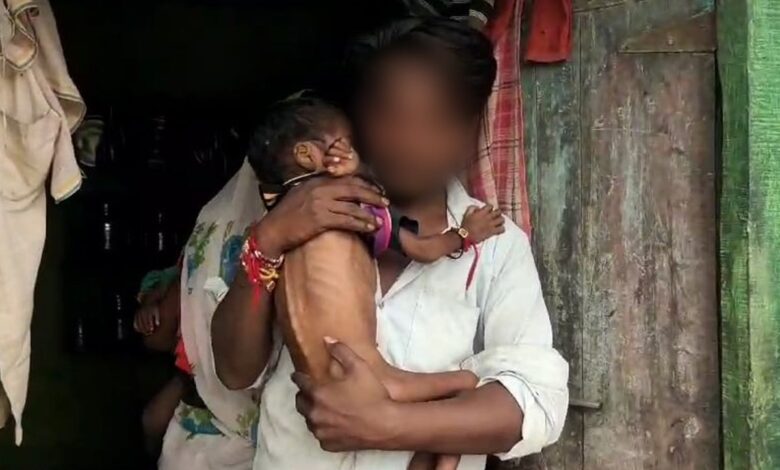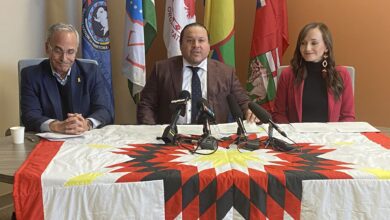
Reports of severe malnourishment among Sahriya tribal children has sent alarm bells ringing in Baran in south Rajasthan, a district that borders Madhya Pradesh.
Of the 98,000 children surveyed, 250 to 400 reported varying degrees of malnutrition of which 193 needed immediate treatment.
The Sahariyas, a tribal group spread across districts of Rajasthan and Madhya Pradesh, have been classified as especially backward and are considered more vulnerable and at a disadvantage even among tribal groups.
In village Samraniya, district Baran, a severely malnourished two-and-a-half-year old boy, Karthik, is held up by his father.
The child can barely stand. He doesn’t smile or run around like children his age.
A survey by the District Collector in these Sahariya tribal-dominated villages have found hundreds of such children severely malnourished and on the brink of a health crisis.
“We go to the hospital but they simply give us medicines and send us back,” said Karthik’s father.
Karthik has now been taken to the district hospital in Shahbad for treatment.
With seasonal diseases setting in, children began reporting to the district hospital which alerted the administration.
After visits to the villages, sick children, more than a 193, were asked to report to the malnourishment treatment centre.
168 children are now being treated in hospitals in Baran and Shahbad.
Many of them lie listless on the bed, sometimes there are 2-3 children on one bed while others occupy benches in the ward.
The Medical officer Dr Neeraj Sharma told NDTV that there are 20 beds in Shahbad and 54 children were admitted. Now, a separate ward with more beds will be created for their treatment.
“We are taking steps to treat children and are surveying the villages. For affected children we give the Sahariyas double poshahaar or nutrition kits and those who need medical attention will be admitted to MCT wards. The problem in this season is that water sources get affected there are seasonal diseases and children often fall prey to diarrhea. The malnutrition worsens and it becomes a health crisis. The Sahariyas also migrate for work and then when they are away their families get neglected,” District Collector Rohitash Singh Tomar said.
Neeru Sankhla, deputy director of the women and child welfare’s ICDS wing, complained that there is a shortage of staff.
The poshan tracker is meant to track manlourished children and women but due to a lack of staff and co-ordinator the data is not updated and children suffering from malnutrition get neglected.
The government has organised double nutrition for the Sahariya tribals.
Apart from the cereals and food supplements that are provided under government schemes for this tribal group an additional nutritional package is also delivered to them which consists of pulses and ghee and cooking oil.
Despite several government schemes for their benefit, the Sahariyas remain marginalised and vulnerable to health problems like severe malnourishment.




